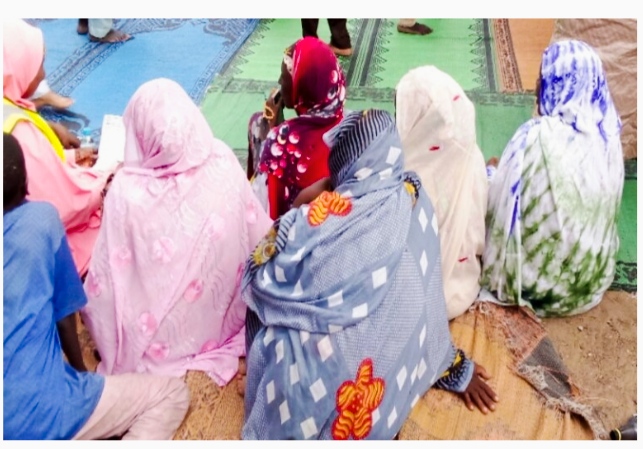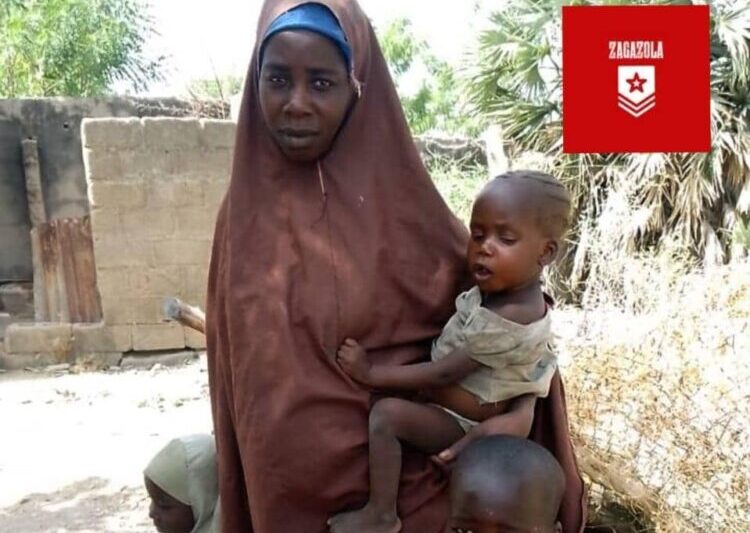Approaching the house, the old and cracked wooden door is open. Only a shabby curtain serves as a barrier between the street and the unplastered house which has only two small rooms, a corner for cooking and a smaller section for the toilet.
Inside, a 15-year-old girl is seated on a mat with her elderly grandmother. The young girl is a victim of gender-based violence (GBV), but her granny does not see it in that way and is still angry and embarrassed about what happened to the girl, whom she hasn’t fully forgiven.
They agree to speak to RNI reporter Aisha Jamal as long as their identity remains anonymous.
The grandmother says: “I’m take care of my granddaughter because her mother brought her and her siblings to me before she died. The father is far away and she’s under my care. I used to tell her to avoid getting involved with boys and men, but she refused to listen to me. Then she fell pregnant and now she has given birth.
“I feel devastated because she now is just 15 years old and so very young to take care of herself let alone a baby. This happened to her when she was only 14.”
The granny says because they are so poor and cannot even afford to feed themselves, they had handed the newborn, a baby boy, to a woman who could care for him.
“We have no money. When it rains our house gets flooded. There is water everywhere. We do not even have a dry place to rest our feet. I am so disappointed my granddaughter put us in this situation. But it’s beyond my control and I’m struggling to deal with it.”
The young girl, who gave birth a week ago, looks pale and sad. It is clear she has not eaten anything for a while. She looks disheveled and says she feels embarrassed about what happened to her. It does not help that her grandmother still blames her.
She says: “I took my phone to try to get it charged when a boy who lives in our area suddenly grabbed me and dragged me into his room. His friend was inside the room and the boy asked him to leave. Then he forcefully made me undress and he raped me. It was very frightening and I could not stop him. He would not listen to me.
“I didn’t even know I was pregnant until the evening the baby came. I was in terrible, extreme pain. A neighbour helped me to deliver the baby boy at home. The boy who is the father denies that the baby is his and his mother has told him to never agree that the baby is his or that he was the one who impregnated me. She told him to never accept the baby.”
With tears streaming down her face, the girl says forlornly: “The boy’s mother has forbidden him to take responsibility for the baby and she told him that if he did he would get killed for owning up as the one who made me pregnant.
“My tiny baby was taken from me days after I delivered him. We were separated and my granny would not even allow me to breastfeed him. Because we are so poor we could not afford to buy milk for the baby. My granny gave him to another woman.”
Lucy D Yunana, a child rights activist in Maiduguri who works for the National Human Rights Commission Borno State, told RNI that the case had been forwarded to her concerning a 15-year-old girl who was raped and subsequently got pregnant and gave birth to a baby boy.
“Without considering the provisions of the law, the newborn baby was given to a woman because the girl’s grandmother was embarrassed about the girl getting pregnant and used to hide the baby under a bed and stopped the young mother from breastfeeding the baby.
“Every child has the right to live, the right to a good education and all other fundamental rights. These young girls are often lured into precarious situations. They are young, innocent, do not know they have rights and they are often driven by poverty.”
Yunana said the commission had been inundated with similar cases of sexual abuse. “With the Ministry of Women Affairs and the police force, in August and this month, we have been dealing with many such cases of violation and exploitation of young girls. At present, we have four cases and now, with this particular case, there are five.”
She said there was a desperate need for parents to teach and educate their children about sex – and to warn boys that they faced being reported and charged for committing sexual GBV (SGBV). They would also be liable for any medical issues caused by the abuse and told that girls had rights that could not and would not be taken from them.
“Community leaders should not hide such cases and should inform the authorities so that proper action can be taken. Our children need to be protected and the whole of society is responsible for that.”
In a recent report Yunana said the rape of women and girls was a pandemic, greater than COVID-19. “I am therefore of the opinion that anybody found guilty of rape should be castrated with a knife,” she said.
A report by the UN Refugee Agency (UNHCR) said the number of cases of SGBV was escalating at an alarming rate and it was particularly rife among vulnerable internally displaced persons. Some victims had even committed suicide after being sexually abused.
“The cycle of instability due to the insurgency and security operations in northeast Nigeria keeps adding to the serious challenges faced by the affected population, including SGBV incidents, abductions and killings.”
A report by UN Women said violence against women and girls was a human rights violation, and the immediate and long-term physical, sexual and mental consequences could be devastating, including death.
“Survivors of GBV suffer devastating short- and long-term consequences to their physical and mental health. Women and girls may experience severe physical injuries, unwanted pregnancies and exposure to HIV or other sexually transmitted infections. Depression, anxiety, post-traumatic stress disorder [PTSD], the limited ability to complete daily tasks and suicidal thoughts are also common,” the United Nations Children’s Fund (UNICEF) said.
AISHA SD JAMAL








